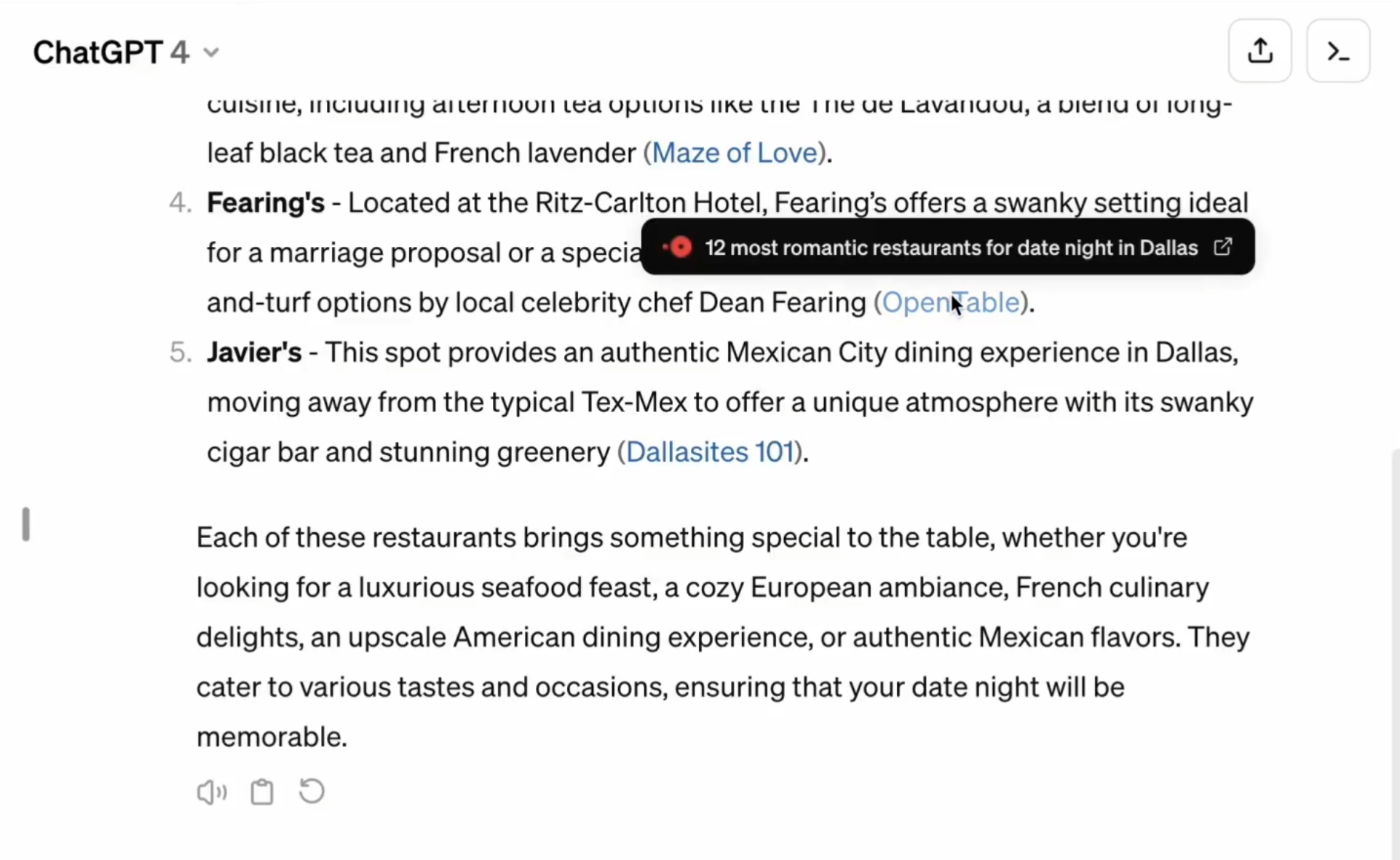OpenAI takes next step towards ChatGPT-powered LLM search product

With more visible links and partnerships with media companies, OpenAI is working to make ChatGPT a viable alternative to search engines. This creates a new dilemma for publishers.
OpenAI will place links more prominently in ChatGPT, giving LLM answers more context and making it easier for users to access publisher and creator content. According to OpenAI, the new link feature will initially only be available in the ChatGPT Plus, Team, and Enterprise editions.
Video: OpenAI via X
OpenAI CEO Sam Altman confirmed in a recent podcast interview with Lex Fridman that his company is interested in combining language models with Internet search capabilities. This offers the potential to completely reinvent search rather than just copy Google, Altman said.
"The intersection of LLMs plus search, I don't think anyone has cracked the code on yet," Altman said, noting that it would be a "cool thing." LLMs could help users find, create, summarize, or reference the information they want.
More prominent links are one element. Another is deals with media companies like Le Monde, Prisa Media, Axel Springer, the American Journalism Project, and the Associated Press.
The deals include integrating their content into ChatGPT, displaying a summary to users, and allowing OpenAI to use the publishers' content for AI training.
In return, the publishers receive royalties and supposedly increased reach through links to the original articles. However, it is doubtful that many users actually click on the links in ChatGPT to check the content of the source.
If LLM-based interfaces replace traditional web content in everyday life, publishers will be grappling with whether to strike such exclusive deals with OpenAI and others, or stay on the sidelines. The influence of AI companies on news distribution will be greater than that of tech companies like Google today. Publishers are sliding from one prisoner's dilemma to the next.
AI News Without the Hype – Curated by Humans
As a THE DECODER subscriber, you get ad-free reading, our weekly AI newsletter, the exclusive "AI Radar" Frontier Report 6× per year, access to comments, and our complete archive.
Subscribe nowAI news without the hype
Curated by humans.
- Over 20 percent launch discount.
- Read without distractions – no Google ads.
- Access to comments and community discussions.
- Weekly AI newsletter.
- 6 times a year: “AI Radar” – deep dives on key AI topics.
- Up to 25 % off on KI Pro online events.
- Access to our full ten-year archive.
- Get the latest AI news from The Decoder.